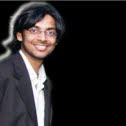Drunk pilots should be jailed!
It’s unbelievable that DGCA still does not cancel the flying license of a pilot flying drunk; the IIPM Think Tank does a critical analysis of the lopsided DGCA regulations
Last month, the DGCA announced that a pilot who gets caught drunk twice ‘might be’ sent for ‘rehabilitation’; and if caught thrice, the same ‘might’ lead to their job termination. Within two days of the announcement, DGCA upped the punishment post haste and announced that a pilot caught drunk once will have his or her license suspended for three months. A second time would lead to permanent suspension.
While the DGCA is self-applauding itself on its apparently stringent resolve to reduce drunk flying, one is flabbergasted at how lenient such a resolve is in reality, given the fact that pilots are responsible for the lives of more than a hundred passengers per flight. The DGCA should learn a lesson or two from the Delhi Traffic Police, which now has a zero-tolerance policy for drunk driving, where any driver caught driving drunk even once will have his/her license cancelled immediately (1378 licenses were cancelled by the Delhi Police in the last eleven months under this clause). Clearly, the DGCA feels that it’s all right to allow drunk pilots to keep flying.
Further, till now, the DGCA has been checking pilots through breath analysers before the flight starts, without keeping a check on whether the pilot drinks during the flight. Pilots know and realise this easiest method of avoiding getting caught. One is told that the DGCA, after so many decades of existence, has started advising such checks post the flight too.
We say that the DGCA diktat should have focussed on cancelling the licence of the pilot and jailing him. The Motor Vehicles Act already has this stringent provision of jailing for drunk drivers, with the term ranging from three months (for first time offenders) to six months (for repeat offenders). It’s unbelievably strange that the DGCA doesn’t believe in that.
So are pilots really flying drunk? As per a 2009 Rajya Sabha report by Civil Aviation Minister Praful Patel, during the past one year, “Eight pilots of Kingfisher Airlines, six each of Indigo and SpiceJet and three each of Jetlite, Jet Airways and Paramount were detected alcohol-positive during a pre-flight medical examination.” A brief trend analysis reveals that in 2009, more than 40 pilots were found drunk on duty and only 8 of them were sacked. According to a Right to Information Act report in 2009, 28 pilots found drunk are still flying.
Imagine the consequences. The Jayaprakash Narayan International airport in Patna, for instance, allows pilots to use only 6,300 ft of the 7,500 ft (against the international norm of 9000 ft) long runway. This forces pilots to take-off at high speeds and calls for planes to fly light. But in most cases, these planes are full till the brim. Runways in Patna (6300 ft), Jammu (6700 ft), Mangalore (table top runway of 8038 ft), Aizawal (3131 ft), Kullu (3690 ft), Port Blair (6000 ft), Agartala (7500 ft) and so on and so forth, are other notable instances of international norms not being met on runway length, leading to a necessity that the pilot landing the plane or taking off be sober.
And in India, in spite of alcohol tests being mandatory, airlines take a lenient stance in order to keep the schedules of flights intact. DGCA’s current policy is a problem looking for a solution rather than being the opposite, which it should have been. We repeat, jail the drunk pilots the first time itself; they’re playing with hundreds of lives.





No comments:
Post a Comment